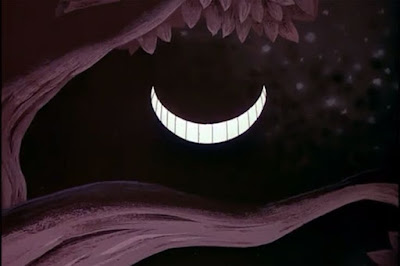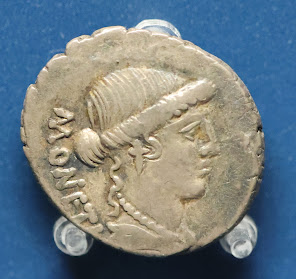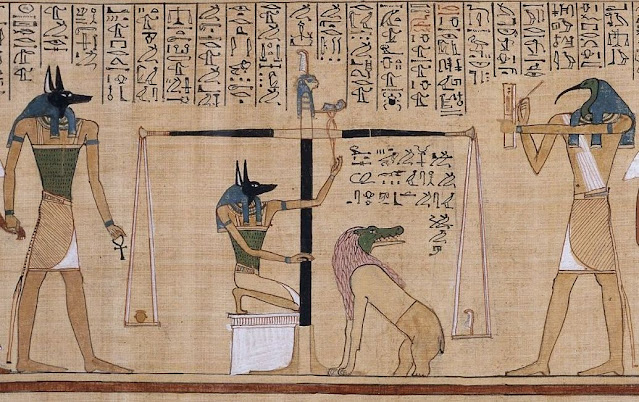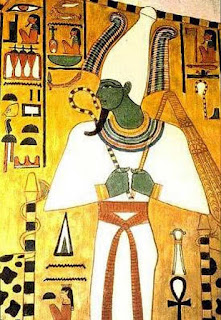Once we have awakened to the mystical illumination of The Star and its life giving revelation of a hope, providing expansion beyond even the most grand edifices built by human hands, our attention is drawn in to the dreamy silvery light of La Lune and the hidden depths within.
Intuition (from in [*en-]+ tueri "to see, look at, protect, watch, uphold"), like the moon, our most distinguished satellite (from Latin satelles "attendant, bodyguard") that watches over us in the darkness, is our inner tutor (also from tueri) in Latin meaning "guardian, watcher," 👁 that speaks through instinct, feelings and emotion, and draws its knowing from the watery ungrounded realms of the unconscious.
The Moon - Represents the spirit of inspiration.Normal position: Deception, twilight, obscurity, trickery, caution, warning, bad influence, ulterior motives, selfishness, slyness, false promise, disgrace, slander, liable, being taken advantage of, failures to avoid the dangers which surround, danger.
Whereas The Star seems fixed and stable The Moon is noticeably ever shifting in its monthly cycle from new moon to new moon.
Moon [from Middle English mone, from Old English mona] is said to ultimately be from the root *me- (2) "to measure." The moon is a kind of meter [from same root] of days that can be used to measure the year broken apart into moons/months, and the four weeks of a month are approximated by the primary phases of the moon; the new moon, first quarter, full moon and last quarter.
An Ancient Greek epithet of the moon goddess Selene (meaning "moon") synonymous in meaning with selene, was Mēnē "moon; month," from the older masculine form mēn, from the same source as the Phrygian moon-god Mên and the Latin mensis "month." So the moon was seen as something that measures. 12 moons make a year. The moon-th measures out the year. But it was also equally seen as a great light (generally when associated with a feminine deity). Both the Greek Selene and Latin Luna come from words meaning "light, brightness," selas and *leuk- respectively. And in Hebrew one word for moon is lebanah "(the) white [as in purified, laban], i.e., the moon."
The moon is the greatest light (luna/selene) or the great heavenly white (lebanah) in the darkness of the night, and even visible during the day. However it should not get a big head about this [even though it is pictured as a big head]
🌝
It is still just a light of the darkness. Even a full moon does not change the night into day, and it is always dependent upon the sun for its own illumination. It is extremely good at partnering with the sun, but if it is not respectful of its particular role, it may fall prey to the grandeur of its own illusions.
The moon gives the illusion of giving its own light when it is really just acting as a big mirror. Illusion is from Latin illudere "mock at," literally "to play with" [in- + ludere]. An illusionist isn't preforming true magic, rather they are pretending or playing at having special abilities such as reading minds, teleportation, telekinesis and the like. Sometimes this is a good thing. It is fun! Like the illusions of set design, costume and acting created for a performance of a play. However illusion can also be used to deceive. And to be deluded [de- + ludere], or played by, ones own illusions is the greater deception. What we see, feel and experience isn't the ultimate truth, it is just a reflection of where we are putting our attention and who we are choosing to be.
Intuition is not opposed to illusion in that it is a liberally ludicrus "playful" [from ludere] type of knowledge. It is not afraid to try out, sport, or play with ideas without knowing specifically why, how and where they might lead. When you listen to your intuition you enter the liminal[twilight] realm of The Moon. Intuition is our inner psychopomp that guides us between worlds by means of instinct, dreams, archetypes, patterns and unseen forces. Because of this, it facilitates inspiration, growth, brilliance and creativity, but at the same time it can fall prey to illusion and deception as well when not carefully checked by the conscious mind and logic in the light of day.
We can see things during the night that are invisible (or outshined) during the day such as the stars and the moon, and these are wonderful to behold, and give guidance, but it is the solar radiation which feeds the planet with energy and life. The light of the sun provides our fundamental foundation, that is, a world filled with the energy of life, that creates a place for contemplation under the stars. The night is not a never-ending darkness, it is only a pause or rest within the totality of the day. It is the light of the sun projected into the night as the delicate glow of the moon, that softly illuminates what would otherwise be in darkness and encourages different and enriching perspectives.
Even though a full moon can brighten up the night, it does not do it well enough to keep us out of danger. Much still lurks in the shadows. You hear a sound, but what is the sound? You sense a presence, but who and what is the presence, and from when and where do they come? You see a figure watching, but is it a man, a beast, or just or just a trick of the eye? Perhaps it is only the leaves of a tree rustling in the breeze?
When there is not sufficient illumination our minds can fill in the blanks with all manner of devils and monsters that aren't even real . . . or are they?
This lack of clarity can play upon our animal instincts. While our instincts are meant to keep us safe, they can also cause us, at times, to act a bit loopy. We can be carried away by the currents and tides of emotion.
We can become driven like dogs barking after intruders, delivery workers or invited guests alike without discrepancy, or at other times, we may become lupine(wolf-like), that is, wolfish, lascivious, rapacious, voracious or otherwise impassioned under the cover of darkness, especially, as lore would have it, at the time of the full moon when lunatics (those affected by luna[moon]) are triggered and run rampant.
Emotions are influenced by our stored subconscious experiences and they are always true in the sense that when they are being felt they are really being felt, but they aren't always a true reflection of reality. Therefore, it is important to listen to and address emotions but not let them be the ultimate arbitrators. We always need to question our feelings and submit them to the light of reason before we act or we can live to regret our actions that were based upon the true feeling of emotion, such as anger, fear, anxiety, lust, exuberance, infatuation, etc.
For example. when a person feels anxious what is the feeling telling them? There is a reason the person feels anxious, but there is not necessarily a real danger that they need to be prepared to act against. When a person is angry, they may not really know the truth of the situation or may be making assumptions. Or when a person is infatuated they may feel truly on top of the world and in love, but those feelings do not necessarily mean that they have found their one true soulmate or lifelong partner. It just means that something important is being reflected to them in this person or situation, but needs to be taken with caution, because, like the phases of the moon, feelings evolve and change over time. What is done in the passion of the moment can feel very foolish in the light of day, and leave a person with some intense and lasting consequences.
The previous trump, The Star, takes us into the realm of the marvelous. We are starstruck! The world is not as mundane as we thought. There are signs and meaning beyond our wildest dreams, our minds are expanded. Magic is real! . . . Then we come to The Moon, and must guard against becoming moonstruck, or drunk off of the taste of the sublime. We mustn't marry the first pretty face or sweet talking boy who steps into view, not comprehending the temporary and changing nature of feelings, including those wonderful and miraculous. Nothing lasts forever.
The full moon 🌕 naturally fades within a month and we are left with nothing 🌑 for three days of darkness until a new sliver appears again to sight . . . and we do it all over again.
As Alice said this, she looked up. There was the Cheshire Cat, sitting in a tree."Did you say, 'pig' or 'fig'?" the Chesire Cat asked."I said 'pig.' I wish you wouldn't keep appearing and disappearing so suddenly. You're making me quite dizzy!""All right." This time the Cheshire Cat vanished slowly, beginning with his tail and ending with his mouth. His grin remained long after the rest of him had disappeared."I've seen a cat without a grin, but never a grin without a cat." Alice shook her head in disbelief. "That's the strangest thing I've ever seen!" -Alices Adventures in Wonderland, by Lewis Carroll 1865
There can be a fine line between brilliance and lunacy, inspiration and mania. What is the measure? Or, how does one remain measured "moderate, temperate"?
Sometimes you need to ride a wave in, or go with the flow instead of sticking to hard lines. At times you may need to curb your enthusiasm, take a breather, or get off the train. Obsession is not measured behavior. It isn't good to be all work and no play, but neither is it good to be all jokes and no seriousness.
The Moon itself is monet, from Latin, it "warns." It is an admonitio "warning." It admonishes (ad + monere) us to be thoughtful or mindful (from monitor "one who reminds, admonishes, checks" calling us to monitor our actions. For all is not as it seems, or all is perhaps more than it seems . . . or less than it seems. The point is, it is not clear.
Our inner wellspring of instinct, intuition and emotions is a currency that we must use wisely and with caution. Like money (from Latin moneta), these things must be managed. While it is not good to always hoard or hide our feelings, neither is it good to overspend them and not invest for our future. All currency 💸 is meant to flow, that is currere "to run, move quickly" [change 👛 is] changing from one person's hand to another's, like a current 🌊. But people's fortunes change like the tides.
Stamping moneta "coinage" with a moneta "die (for coining money)" that looks like a mone/moon and shines like silver, aka, argent, from argentum "silver, silver coinage[Greek argurion "money, pieces of silver, silver"].
might subconsciously remind us or admonere "warn" us to not get carried away. 🤑😈😇As the abundance of the full moon wanes, there are still bills to be paid at the beginning of the month when the sliver of the moon emerges anew bearing resemblance to the curved bill of an ibis 🌙. Like the ancient Egyptian god Djehuti "(he)who is like the ibis," known in English as Thoth.
As scribe of the gods he would have certainly written bills. Here he is shown with a bill (on his face) and billa (Anglo-Latin "a writing, a list"), presiding at the Weighing of the Heart ceremony standing near the scales of Maat("justice, truth, harmony").
Being associated with medicine, mathematics, magic and the moon, we could say he was a god of things meted(or Maat-ed), measured and prescribed. Thoth taught the arts of science and therefore to be Thoth-ful is to be thoughtful and quite bright. 💡
According to Egyptian mythology, Horus was the son of Osiris, the god of the underworld. Horus fought his uncle Seth to see who would be ruler of Egypt. During the fight, Seth mutilated the left eye of Horus. But Horus ultimately won the fight, became ruler of Egypt and, eventually, regained his left eye. It was restored "by the ibis-headed Thoth, the god of wisdom, " Emily Teeter, a research associate at the Polish Centre of Mediteranean Archeology, told Live Science in an email. What is the Ancient 'Eye of Horus' - and why is it found in so many burials? by Owen Janus
The god Osiris is linked to the moon because, as the moon changes from crescent to full from month to month, it recalls Osiris' continual rebirth and regeneration. -metmuseum.org
Then one of the Twelve—the one called Judas Iscariot—went to the chief priests and asked, "What are you willing to give me if I deliver him over to you?" So they counted out for him thirty pieces of silver. Mt. 26:14-15 NIV
Then Jesus went with his disciples to a place called Gethsemane, and he said to them, "Sit here while I go over there and pray." He took Peter and the two sons of Zebedee along with him, and he began to be sorrowful and troubled. Then he said to them, "My soul is overwhelmed with sorrow to the point of death. Stay here and keep watch with me."Mt. 26:36-38 NIV
















.jpg)



















